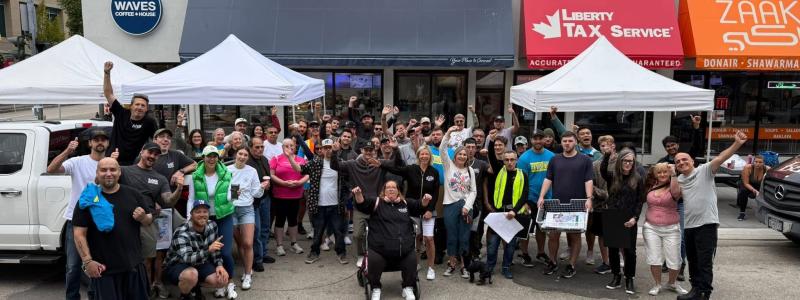The orange shirts will soon appear in schools, on city streets, and in gathering places across Canada. Truth and Reconciliation Day is not just a date on the calendar but an invitation to remember, to lament, and to live differently. It calls us to face what happened, not to stay in sorrow but to join in healing.
Few stories hold both grief and hope as gently as that of Dovette Federspiel ('22).
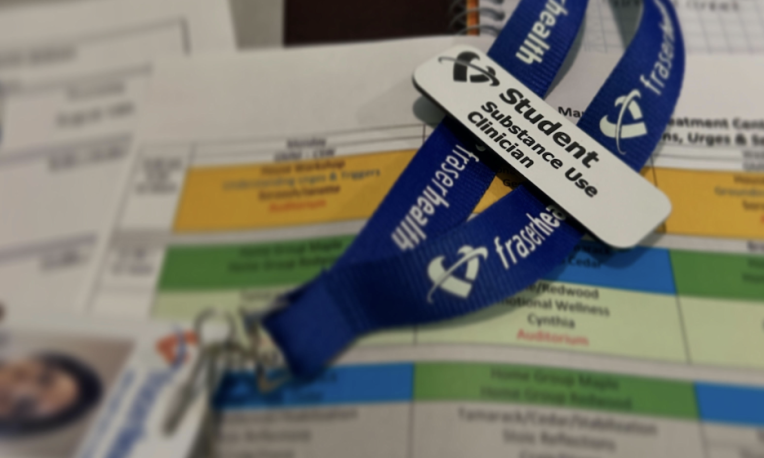
Today she serves as an Indigenous Substance Use Clinician with Fraser Health, working in outpatient substance use treatment. Previously, she worked with Vancouver Coastal Health as an Indigenous Cultural Care Lead (ICCL) and Cultural Youth Care Worker (CYCW).
Her journey began far from the West Coast and wound through questions of identity, loss, faith, and redemption, shaping her into a woman whose work is as much ministry as it is medicine.

Roots, Rupture, and First Light
Dovette was a little girl in a farming town in Alberta when she first felt what it meant to be different. She was one of the many children of the 60s Scoop, taken from her home community and adopted into a Dutch family.
“Growing up, I was always told that my biological parents couldn’t care for me because they were alcoholics, they were drug addicts,” she remembers. The words settled heavily on her. “It was phrased in a way where I looked down my nose at them. I felt shame about that.”
The shame deepened on the playground. Children’s words stung, names were thrown at her, and it chipped away at her sense of belonging. Each insult reminded her that she carried a story that no one had helped her make sense of yet.
Years later, as a young adult, she and her sister began driving into downtown Edmonton in the dead of winter with coffee and sandwiches for those who had nowhere to go. The nights were so cold that the air seemed to crack, their breath hanging in white clouds as they stepped out of the van.
One night they turned down the alley behind the Mustard Seed shelter, where the lineup wrapped around the block and the bitter wind cut through every coat. Against the wall, three Indigenous men pressed close to a vent, letting the building’s heat roll over their faces. She opened the back of the family minivan and passed out coffee.
One man looked at her a little longer.
“It turns out that one of those individuals was a relative of mine from the reserve that I never met and didn’t know.” The realization stopped her in her tracks.
“I think that was probably the first time I was encountered with the reality of colonialism in Canada. But I didn’t know that that’s what it was called.”
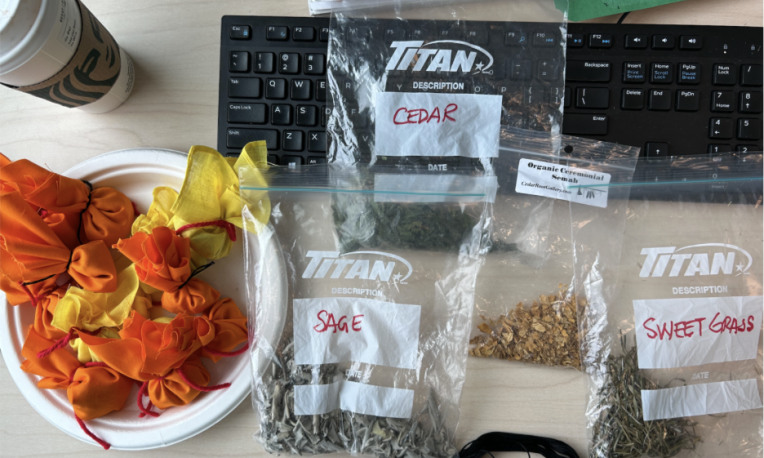
A Move West, A Widening Call
In 2011 her husband became a Christian. Together they felt a pull to the West Coast, though they did not yet know why. They packed up their four children and moved to Abbotsford within a month. Trinity Western University became the place where faith, calling, and a deep sense of purpose began to take shape.
At first she thought her role would simply be to support her husband through school, but something inside her stirred. “I felt like I wasn’t equipped,” she says. “I had a real heart for outreach work. I don't know how to describe it. It wasn't like happiness, but you know when you just feel like that's where you're supposed to be? I wouldn't say it was happiness because obviously, those are really difficult circumstances. But I felt like I could handle it. It didn't scare me. I wanted to be closer to people that were having a rough time, and I couldn't really explain why.”
She applied to TWU, upgraded her high school credits, and enrolled in the bachelor of arts program majoring in Sociology with a minor in Psychology. Lecture halls became places of awakening. One day, sitting in Dr. Todd Martin’s class, she first heard the term 60s Scoop explained. “I remember sitting in that class, and it dawned on me, ‘Hold up. I was born during that time, I was adopted during that time. Does that mean that I’m part of this?’” She left the room shaken, standing alone in the hallway as the realization washed over her that she had just uncovered a missing piece of her own story.
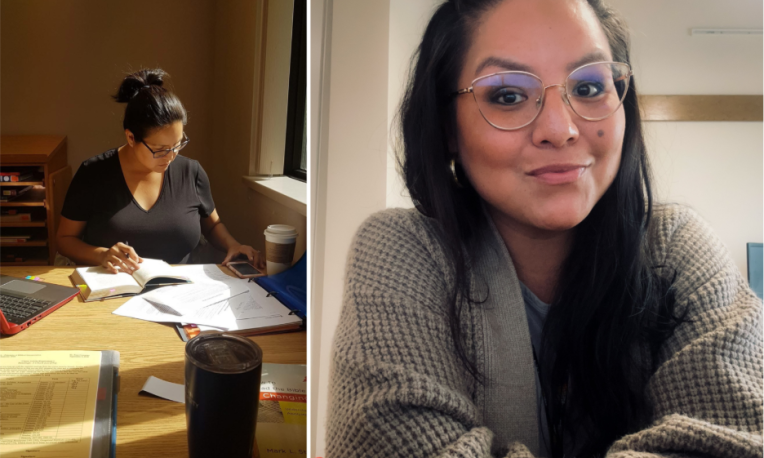
Fire That Refines
Parenting four children while studying full time stretched everything to its limits. “University for two adult parents, mature students with four children is very difficult,” she says. Strain on the marriage eventually led to separation and divorce. At the same time, she began frontline work at Gateway of Hope in Langley. It was there that her calling came into focus, even as her heart was breaking.
“I felt really like this is where I’m meant to be,” she says.
But being present with others in their pain meant confronting her own. Days were long and heavy, and nights sometimes darker still. “I walked away from the Lord,” she says quietly. “I was very mad with him.” She remembers resorting back to old habits, surrounding herself with people who mirrored her hurt, and wondering how she had drifted so far.
But even in that season, God’s grace pursued her.
“It’s just been within the last year and a half that I’ve really started to reconnect with my faith,” she says. “I realized that God loves me anyway. There’s nothing that I can do that’s going to make him not love me.” She began to pray for friends who would lift her up and encourage her. “He sent me some wonderful people,” she says. “That is a miracle in and of itself.”
Reconciling Faith and Identity
The questions about faith did not disappear. “I always get asked, how can you be a Christian if you’re Native,” she says. “You should be angry with the church because of what happened to your people.”
The wisdom of Patricia Victor Switametelót, TWU’s Siya:m and Indigenous Elder, helped her see it differently. “She said to me, if Jesus came to the Indigenous people when God decided to reveal himself as a person, the church would look completely different than it does today. But God has always been here. Every single people group across the land has a name for God.”
Hearing that helped Dovette reconcile her identity. “It made me realize it’s okay to be Indigenous and to be a Christian.”
The Work and the Witness
Today, Dovette stands at the intersection of faith, culture, and healthcare. Her work now takes her across the Fraser Valley, from Abbotsford and Mission up to Boston Bar, where she leads psychoeducational, recovery-oriented groups for Indigenous peoples navigating substance use. The farmland and small towns she visits are a contrast to her earlier years in Vancouver’s Downtown Eastside, where she served those facing poverty, addiction, and stigma. Whether she is building relationships with local First Nations clients and communities, facilitiating group work, or sitting with clients in crisis, her goal is always to create space for dignity and hope.
“I really enjoy it,” she says. “It is a good fit for me.”
When skeptics question her faith, she does not defend what Jesus himself would condemn. “People are broken and make poor choices and do really terrible things to one another,” she says. “But God gives me the words to say to others when they are curious and ask questions.”
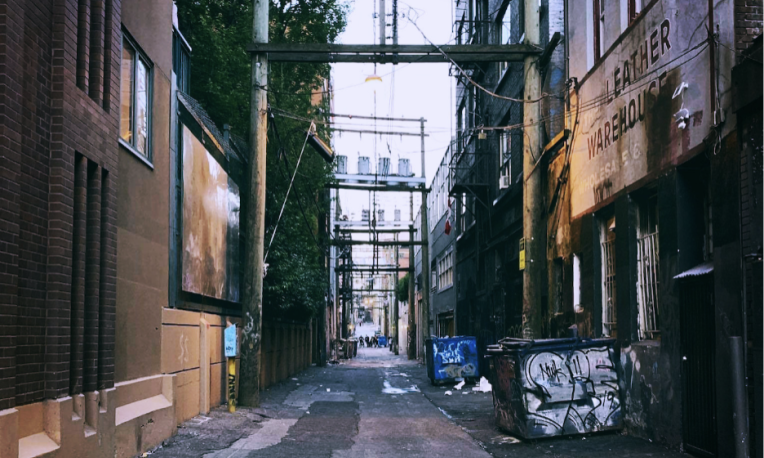
An Invitation for All of Us
Dovette’s story is one of truth-telling, but it does not end in grief. It ends in grace. It reminds us that the failures of others do not erase the faithfulness of Christ, and that reconciliation is not only a national project but a personal one.
For students and alumni wondering where to begin, her story offers a way forward. Learn the history. Listen to survivors. Serve where there is need. Ask God what your faithful next step might be. As September 30 approaches, we are invited to pray, to lament, and to act. Wear orange, yes, but also open your heart. Seek out Indigenous-led initiatives in your community. Support healing efforts. Make space for conversations that are tender and truthful.
Dovette has walked through fire and come out with a deeper, steadier faith. “Whatever it is that I say, the Lord’s gonna use that to bless somebody else,” she says. May her courage move us toward the kind of reconciliation that is not only a Canadian goal but a kingdom one.
Story by
About TWU Alumni
We invite our alumni community to continue to participate in the life of the University. Our desire is to nurture an engaged and flourishing global community of alumni by cultivating meaningful relationships and creating engaging alumni experiences. Learn more at TWU Alumni.
About Trinity Western University
Founded in 1962, Trinity Western University is a global Christian liberal arts university dedicated to equipping students for life. Uniting faith and reason through Christian teaching and scholarship, TWU is a research institution offering undergraduate and graduate degrees in the humanities and sciences as well as in several professional schools. It has campuses in Canada in Langley, Richmond, and Ottawa. Learn more at www.twu.ca or follow us on Instagram @trinitywestern, Twitter @TrinityWestern, on Facebook and LinkedIn. For media inquiries, please contact: media@twu.ca.

